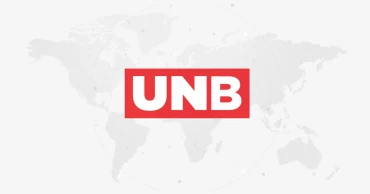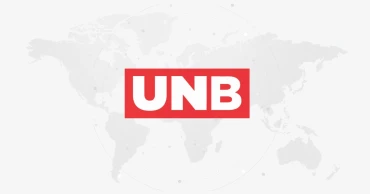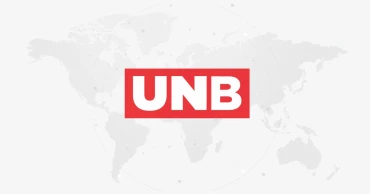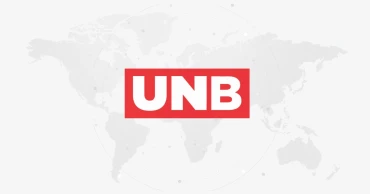capital
Couple’s bodies recovered from Wari residence
Police recovered the bodies of a couple from their residence on the 5th floor of a building on Hare Street Road at Wari in the capital on Friday night.
The deceased were identified as Md Muid, 35, son of Md Musa from Araikandi village in Titas upazila of Cumilla and his wife Ayrin Akhter, 32, daughter of Joynal Abedin of Miaji Bari in Chauddagram upazila of the same district.
Families of victims of enforced disappearances demand justice
.Deputy Commissioner of Wari Division of DMP Harun-or-Rashid said locals informed police after the couple hadn’t opened their door for two days.
Police later broke into the apartment and found the bodies, he said.
“Preliminary evidence suggests that Muid had died earlier as his body had started to decompose while Irene’s body was still fresh. A note, believed to be written by Irene, was found at the scene,” the DC said.
He said Muid had been suffering from cancer for a long time and had not stepped out of the house for nearly four years.
However, it remains unclear whether it was a case of suicide.
The couple had reportedly been separated from their families since their marriage, which their families did not accept.
Youth shot in Hatirjheel, critically injured
The note also requested that their bodies not be sent to their native villages and that they be buried side by side, said Harun-Or-Rashid.
Babul Ali, a morgue assistant at Dhaka Medical College Hospital, said police brought the bodies in on Friday night and that decomposition suggested the couple had died two to three days earlier.
Whether Ayrin died by suicide will be confirmed once the autopsy report is available, said DC Harun.
10 months ago
How to Build Social Capital to Grow Your Business
Since the COVID-19 pandemic, businesses have been navigating a rapidly changing landscape. Traditional revenue generation methods may no longer be as effective, and companies are looking for innovative approaches to drive growth. One such powerful yet often overlooked strategy is leveraging social capital. By effectively utilizing social capital, businesses can enhance revenue generation and gain a competitive edge. Let's take a look into the concept and methods of social capital building.
What is Social Capital?
Social capital refers to the value embedded within the relationships and networks a company has built with various stakeholders, including employees, customers, suppliers, and the wider community. It encompasses trust, shared norms, and mutual obligations.
Social capital can manifest in various forms, such as strong customer relationships, influential industry connections, and a supportive network of partners. It represents an intangible asset that companies can leverage to gain a competitive advantage and stimulate revenue growth.
Read more: How to Build a Successful Company?
Significance of Social Capital in Business
Social capital holds immense significance in the business realm. It enables companies to access resources, knowledge, and opportunities that might otherwise be unavailable. By fostering strong relationships with customers, companies can enhance customer loyalty, drive repeat business, and benefit from positive word-of-mouth referrals.
Additionally, social capital facilitates collaboration and knowledge-sharing among employees, leading to increased productivity and innovation. Companies with robust social capital often enjoy favorable partnerships, joint ventures, and business opportunities that arise from a strong network.
Ways to Build Social Capital for the Growth of Your Business
The following strategies can help you develop social capital and generate more revenues for your business or company.
Building A Strong Network
Building a strong network involves actively connecting with individuals and organizations within your industry and related fields. It would be helpful if you attend conferences, industry events, and trade shows to meet potential customers, partners, and influencers.
Read more: Silent Partner vs Investor in Business: Know the Difference, Pros and Cons
You may engage in networking activities both online (LinkedIn can be a great option) and offline, such as joining professional associations or participating in industry-specific forums. Attempt to actively seek opportunities to establish relationships and build rapport with key individuals.
Cultivating Relationships
Once you have established connections, it would be better to focus on cultivating meaningful relationships. It is essential to invest time and effort in nurturing these relationships by providing value, offering assistance, and sharing relevant insights. You can develop yourself as a resource by sharing industry knowledge, providing support, and connecting individuals who can benefit from each other.
By consistently demonstrating your willingness to help and contribute, you can strengthen your social capital and increase the likelihood of receiving support and referrals.
Read more: What to Consider Before Investing in a Startup or Company?
Growing Strong Customer Relationships
Try to focus on building meaningful connections with your customers. Building and nurturing strong relationships with customers is essential for utilizing social capital. Companies can focus on providing exceptional customer experiences, personalized services, and addressing their needs effectively. By going the extra mile to foster trust and loyalty, businesses can benefit from positive customer testimonials, repeat business, and increased referrals.
2 years ago
2 youths killed in separate road crashes in capital
Two youths were killed in separate road accidents in the capital’s Ramna and Matuail areas early Friday, police said.
In the Ramna accident, businessman Abdullah Limon, 30, sustained severe injuries when a speeding truck crashed into his motorbike near the Justice Residence around 1:45am.
Limon, from Manikganj’s Ghior upazila, was rushed to the Emergency Department at Dhaka Medical College Hospital where physicians declared him dead around 2:30am, confirmed Mujahidul Islam, sub-inspector at Ramna police station. The truck driver was detained and the vehicle was also seized soon after the accident, SI Mujahidul added.Limon's body was kept at the hospital morgue for autopsy. His paternal uncle Md Alam said Limon was returning to Narayanganj from the capital’s Mirpur after attending a wedding ceremony. He had a Navana Battery dealership in Narayanganj’s Balu Math area.
In the other fatal mishap, an unidentified youth aged around 35 was killed in what looked like a hit-and-run, but there were no witnesses. An unknown vehicle knocked him down while he was crossing the Dhaka-Chattagram Highway in the Matuail area around 3am, leaving him dead on the spot, said Mostafizur Rahman, sub-inspector at Jatrabari police station.
The body was sent to the DMCH morgue for autopsy, the SI said, adding that they were trying to identify the youth.
2 years ago
Stock market gained over Tk 10,185 crore capital last week
The stock market has passed the 4th week of the current month with a capital gain of Tk 10,185 crore in four days, data analysis of the capital market has revealed.
The capital of Dhaka Stock Exchange (DSE) was Tk 7.56 lakh crore at the beginning of trading on the first working day of last week. On the last day, after transaction on Thursday (January 26, 2023), the capital stood at Tk 7.67 lakh crores.
In other words, the capital has increased by Tk 10185 crore. It increased by Tk 2149 crore in the previous week. The investors' capital increased in the market for two consecutive weeks.
In the past week (January 22 to 26), trading was done on five working days. The first trading day marked a fall in the index, followed by four consecutive trading days during which the index rose from Monday to Thursday.
Also Read: BSEC forms Shariah Advisory Council for stock market
During this period, a total of 387 shares and units were traded in DSE. Among them, 63 companies' share prices increased, those of 119 decreased and 205 unchanged.
Among the companies traded in the previous week, 114 rose, 68 fell and 205 remained unchanged. The number of companies reducing prices has increased compared to the previous week.
However, the main index of DSE increased by 30 points from the previous week to 6,296 points in the outgoing week as the share prices of several companies increased.
Among the other two indexes of DSE, the DSES index increased by 6 points to 1,374 points and the DS-30 index increased by 22 points to 2,230 points from the previous week.
Read More: ‘Greed for short-term gains ruining investors’ confidence in stock markets’
Although the index has increased, the volume of transactions has decreased. In the last week, the total transaction in DSE was Tk 3050 crores, which was traded in the previous week for Tk 3850 crore. That is, Tk 800 crore worth of transactions have decreased; as a percentage it has decreased by 20.78 percent.
The Chittagong Stock Exchange (CSE), another capital market of the country, was also traded in the same condition.
In the last week, the overall index of CSE increased by 89 points to 18565 points. Tk 63.19 crores were traded during this time, which was traded in the previous week for Tk 104.55 crore.
Among the traded companies, the share prices of 61 companies increased, 83 decreased and 134 remained unchanged.
Read More: Finance minister directs regulators to boost investment in stock market
3 years ago
Shares vs Bonds: What is the Ideal Investment Opportunity
If someone thinks of investing their money, it almost universally comes down to two major ways – either through equity or debt. Equity is where an investor becomes a part owner of the invested company or business. Whereas debt is the traditional lending and borrowing process. Here the investor acts as the creditor and the return is the interest plus capital. Interestingly, these two concepts are also what define shares and bonds. So, Shares or bonds, what is the best investment stream? And more importantly, what’s right for you? Let’s find out.
What are Shares?
A share is a unit of measurement for a stock, which is the actual asset in which you invest. Shares make up the basis of equity investment. Here the investor invests to become a part owner of the company. The size of the owner depends on the number of shares bought. It also depends on the number of shares in circulation by the company.
Read More: Apartment Buying Mistakes to Avoid to Secure Your Investment
At its core, an investor or shareholder utilizes the high-risk, high-return factor of share investment. For example, if the company consistently performs well, the shareholder will enjoy a consistently high ROI. On the other hand, if a company performs, poorly, it will lead to a loss of investment.
Shareholders receive dividends annually based on the profit margin of the company. Depending on the business cycle, this margin can be high or even so low that there might be no dividend at all.
If an investor holds a substantial share in a company, they get a place on the board of directors where they can vote to decide the future course of the company. Shares essentially allow an individual investor to take responsibility and the implications are also simple. You share the profit as well as the loss in an equal manner, hence the high risk, high return factor.
Read More: Metaverse Real Estate Investment: Buying Land, Apartment, Property in Virtual World
Advantages of Shares Compared to Bonds
The main advantage of shares is the potential for high returns. Other investment opportunities can hardly provide a similar level of return possibilities. Shares also pay dividends which is another addition to lucrative profit margins.
The return on investment will grossly depend on the period of high profit or less. Since the instrument of investment for shares is equity, investors can expect proportional growth or loss on their investments. The same doesn’t hold for bonds.
Investors can input their ideas into the future process of a business with share investments. It makes for a more controlled and impactful investment compared to bonds.
Read More: Share Market Investment Guide: How to Invest in Stocks in Bangladesh
Disadvantages of Shares Compared to Bonds
The only disadvantage of shares compared to bonds are the high-risk factor. There is no way to understand how a business will perform given the volatile investment climate.
Every share is traded through a central stock exchange commission which may go through a gross fluctuation by the minute.
So if you’re risk-averse, chances are that shares aren’t really for you.
Read More: Making Investment Decisions: Factors to consider when investing money
What are Bonds?
You lend your friend a crisp 100-dollar bill and he pays you back 110 dollars the next month. The additional 10 dollars over the capital is the interest on top of the capital. Bonds follow this exact principle of debt instrument. Here the investor, who buys the bond, is the creditor, and the bond seller company or business is the debtor.
The investor (bond buyer) and the company (bond seller) essentially draw up a loan agreement. As part of the agreement, the company will pay back the invested sum within a certain date along with a regular fixed interest rate on top of the capital.
It's low risk with a low return but provides better security on the invested capital.
Read More: Plot vs Apartment: Which is the Better Investment Option?
Advantages of Bonds over Shares
The only advantage of bonds over shares is the low volatility. Unlike shares, bonds have a fixed return rate on top of the capital. Here, the investor knows upfront how much they will be getting out of the investment at the end of the cycle.
Even in case, the company goes bankrupt, the bond investors will get priority compared to the shareholders in returning the dues. As a result, the investments of bondholders are secured in both ways.
Disadvantages of Bonds Compared to Shares
The main disadvantage of bonds compared to shares are the reduced return and lack of equity. At the cost of security, bonds investor has to forego a substantial ROI generation. The bonds' investors do not get any say in the process and proceedings of the business which is otherwise possible with shares.
Read More: Is Sanchayapatra a Good Investment in 2022?
Lifecycle of Bonds and Shares
Both bonds and shares have their respective lifecycles which are often important for an investor to understand which investment cycle works best for them.
A share has typically 4 phases in its lifecycle – accumulation phase, markup phase, distribution phase, and downtrend phase. Each of these phases comes up cyclically where the price stabilizes, goes up, shareholders sell and the price tumbles again.
The bond lifecycle is much more simple compared to the shares. Here there’s a primary market where the bond gets issued, a secondary market where the bond gets traded, and finally maturity, where the investors get back their capital.
Read More: Is Gold a Good Investment in 2022?
The companies can use the resolved bonds at maturity to venture into new refinancing opportunities.
Shares vs. Bonds – Which One is the Better Investment Option?
Shares and bonds are both great investment options. But the choice of investment depends much on what you want out of your investment.
If you want a high return and aren’t worried about the associated risks, go for shares. But if you are more concerned about the security of the investment and returns are your secondary concern, then head over to the bond market.
Read More: Saving vs. Investing Money: Know the Pros and Cons
Final Words
Shares and bonds are both equally popular as investment opportunities. The process of investing through shares usually requires a BO account in a brokerage firm. On the other hand, a bond requires an agreement drawn out through a third party, usually a bank.
Both stocks and bonds are protected by strict government financial regulation with the former having its separate regulatory commission. So depending on your preference, both shares and bonds can be an effective way to increase your wealth base.
3 years ago
Late monsoon rains disrupt life in capital city
A bout of heavy rain lashed the capital city on Monday afternoon triggering water-logging in many areas and causing sufferings to commuters, including students.
Streets in parts of the city, including Mouchak, Bijoy Saranari and Kakrail, went under water disrupting transports.
Caught in the sudden rain many were seen wading through water for lack of vehicles. Some opened their umbrellas, while others took shelter in open spaces under flyovers.
Also read: Rains likely to quell heat in Bangladesh
3 years ago
Tajul briefs JS on Wasa, city corporations' projects to serve capital
LGRD Minister Tajul Islam on Tuesday said Dhaka WASA has taken plans and initiatives to bring the entire capital under 100 percent permanent sewerage network by 2030.
In response to a tabled question from ruling Awami League MP Nurunnabi Chowdhury, Tajul said that according to the plan, five sewerage treatment plants will be set up around the capital city.
Those treatment plants are: Pagla sewer and network treatment plant, Dasherkandi sewage treatment plant, Rayer Bazar sewage treatment plant, Uttara sewage treatment plant and Mirpur sewage treatment plant.
The LGRD minister also said that construction of Dasherkandi sewage treatment plant is already complete and a trial run is going on at present.
In reply to another query, the LGRD minister said that more than 6000 metric tons of waste is produced under the two city corporations of Dhaka every day.
Read: 19th JS session to continue till September 1
The minister also said that the government has taken up plans to produce biogas, bio-fertilizer, electricity, recycling plant through modern waste management.
In response to a question from AL MP Didarul Alam, the LGRD minister said that 54 wards under Dhaka North City Corporation produce about 3,400 tons of waste every day.
About 84 percent of the waste arrives at secondary transfer stations. Later it is regularly removed by environmentally friendly vehicles and managed in landfills.
The remaining 16 percent is broom waste, which is removed at night by open trucks.
The minister said Dhaka South City Corporation collects 2800-3000 tons of waste daily and manages the waste at Matuail Landfill. Waste collection rate is more than 90 percent.
3 years ago
Commuters' misery mounts countrywide after fuel price hike
Commuters are facing immense suffering as most of the buses remained off the roads in different parts of the country including the capital on Saturday after the fuel price hike in the country last night.
The commuters were seen waiting for long at the bus stoppages and those who managed to ride on a bus were being charged additional fares by the bus staff, they alleged.
In Khulna, most of the passengers of the long route were seen returning from Sonadanga Bus Stand as staff of the buses were taking extra fares from the passengers. The amount of the additional fare is too much from the original fare.
Also read: Fuel price hike: Passengers suffer as buses go off roads in capital
Transport owners of the district are plying limited buses intentionally to take extra fares from the passengers taking the advantage of the fuel price hike, alleged some passengers at the bus stand.
Ripa Begum, at the Sonadanga Bus Stand, said she doesn't know about the price hike of fuel by the government. She became surprised as a bus driver was collecting Tk 250 instead of the existing Tk 180 on the Jhenaidah-Khulna route.
Sundarbans Paribahan Lineman Sujit said they are charging extra fares from last night after the announcement of the government.
Golam Samdani Sakib, general manager of Tungipara Express said they are taking additional Tk 100 from each of the passengers on AC and non-AC buses.
Some passengers alleged that the decision of fuel price hike by the government during this Corona pandemic is unethical.
In Dinajpur, the fare of CNG-run coaches has been increased on Saturday. However, bus fares on the internal route remained unchanged.
People thronged the petrol pumps in the district last night before 12am to get fuel for the vehicles at the earlier price. But some fuel stations in Nababganj and Chirirbandar upazila refused to sell petrol and octane at the old price. However, they were bound to sell at the old price to avert unwanted incidents as motorcyclists barricaded the road.
Also read: Consumer slapped with largest ever hikes in fuel oil prices
Dinajpur Road Transport Owners’ general secretary Shahed Chowdhury said they will increase bus fares after the decision of BRTA and the district transport committee.
In Rangamati, Rangamati-Chattagram Bus Owners Association has stopped vehicular movement on all routes including Rangamati-Chattagram Highway protesting the fuel price hike by the government.
Meanwhile, some CNG-run mass transports are plying in the district and charging extra fares to the passengers. Many people and students reached their destination on foot.
Mizanur Rahman Babu, general secretary of Rangamati District Auto rickshaw Workers Union, said all long routes buses will not move till the further decision of the government about transport fares.
In Bagerhat, people were waiting in long queues at the fuel stations since last night.
Fuel filling station authorities said additional fuels have been sold following the government announcement of the fuel price hike. As a result, a temporary fuel crisis might occur at the fuel stations.
The government hiked the price of fuel oil by a big margin, said a media release from the power, energy and mineral resources ministry on Friday.
According to the release, diesel price has been increased by Tk 34 to Tk 114 per litre while octane price hiked by Tk 46 to Tk 135 and petrol by Tk 44 to Tk 130.
The new price has been executed from Friday midnight.
Earlier, in November last year, the government increased the price of diesel and kerosene by Tk 15 to Tk 80 per litre. As a result, the bus fare was disproportionately increased by around 27 per cent and the launch fare by 35 per cent.
3 years ago
Fuel price hike: Passengers suffer as buses go off roads in capital
The hike in fuel prices by the government on Friday has resulted in an acute transport crisis in Dhaka, causing untold sufferings to commuters as a large number of buses stayed off the roads on Saturday morning.
In an abrupt move, the government increased the prices of diesel, octane and petrol by 42.5 percent, 51.7 percent and 51 percent respectively Friday night. Currently, diesel is being sold at Tk 114 per litre, octane at Tk 135 per litre and petrol at Tk 130 per litre.
Transport owners decided not to operate buses following the government’s announcement, triggering transport shortage in the capital.
Also read: Brace for bus & ferry fare hike
Masuma Nasrin Rimi, a private employee working at a multinational company at Gulshan-1, waited in front of Purobi Bus Stand in Mirpur-12 for two hours but couldn’t catch a bus. She had to share a CNG-run auto-rickshaw with another office goer to reach Mohakhali Wireless Gate area.
3 years ago
Battery-run rickshaw puller killed in city accident
A battery-run auto rickshaw driver was killed being hit by an anonymous vehicle in Asad gate area of Mohammadpur in the city Saturday.
Then deceased was identified as Monir Sheikh, 40, hailing from Tongi Bari upazila of Gopalganj district, said Abdur Rashid, Sub Inspector of Mohammadpur police station
Also read: Two killed in Noakhali accidents
The accident occurred early in the morning and his body was found lying in front of Nabil Paribahan bus counter on Mirpur road near Asad Gate, he said.
“Efforts are on to identify the vehicle and the driver that is responsible for the accident. The body has been sent for autopsy,” said the SI.
Also read: Two killed, 15 hurt in Bagerhat bus accident
3 years ago









.jpg)




